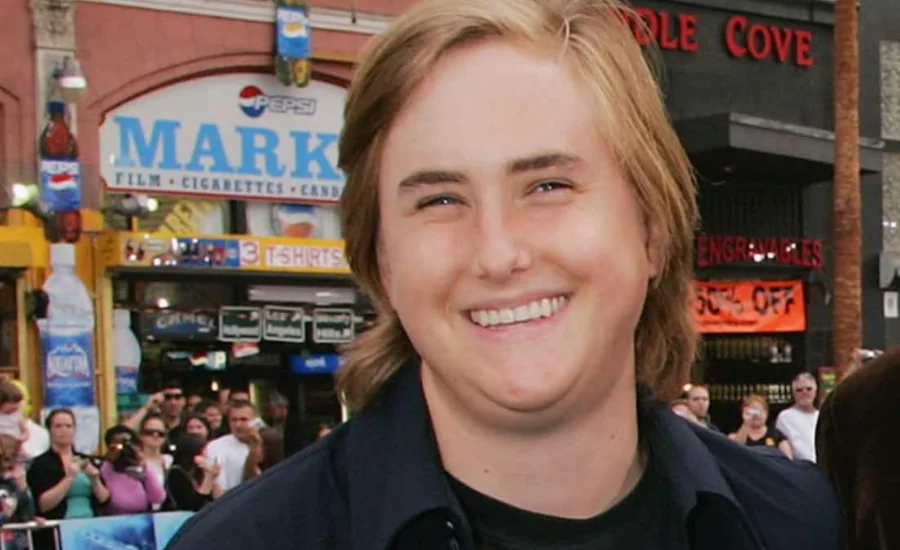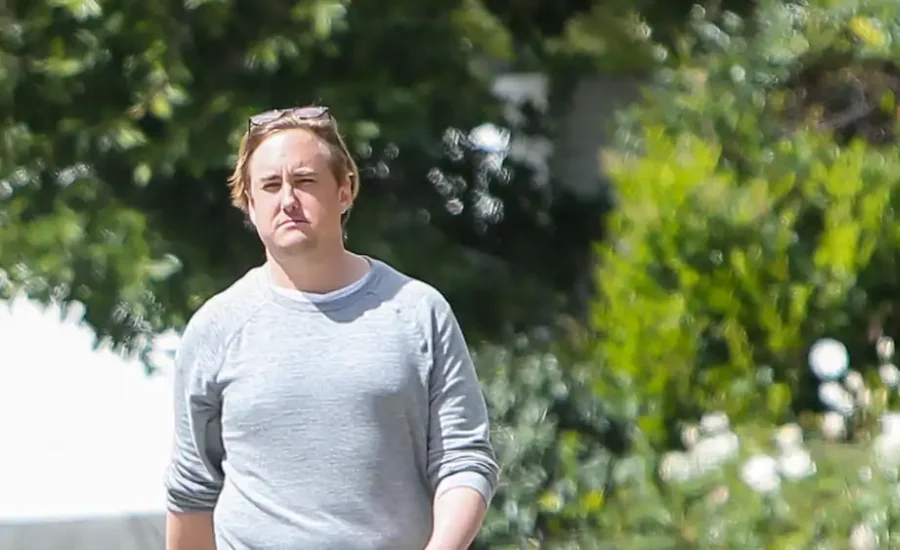Boston Russell Disability: Understanding The Challenges And Opportunities
Living with a disability can be both challenging and rewarding, especially in a bustling city like Boston. Boston Russell Disability highlights the unique experiences faced by individuals with disabilities in this vibrant metropolitan area. This article aims to shed light on the various aspects of living with a disability in Boston, from accessibility to community support systems.
As one of the most historic and progressive cities in the United States, Boston has made significant strides in creating an inclusive environment for individuals with disabilities. However, there are still areas that require improvement, and understanding these nuances is essential for fostering a more equitable society.
Through this comprehensive guide, we will explore the challenges and opportunities associated with Boston Russell Disability. By the end of this article, you will gain a deeper understanding of the resources available, the legal protections in place, and the community initiatives that support individuals with disabilities in Boston.
Read also:American Idol Season 3 Winner A Journey Of Talent Triumph And Legacy
Table of Contents
- Introduction to Boston Russell Disability
- Challenges Faced by Individuals with Disabilities in Boston
- Accessibility in Boston
- Legal Protections for People with Disabilities
- Community Support Systems
- Employment Opportunities for Individuals with Disabilities
- Education and Training Programs
- Healthcare Services for People with Disabilities
- Transportation Options in Boston
- Technology and Assistive Devices
- Conclusion and Call to Action
Introduction to Boston Russell Disability
Boston Russell Disability refers to the unique experiences of individuals with disabilities living in the city of Boston. This term encapsulates the challenges, opportunities, and support systems available to this community. Understanding the context of disability in Boston is crucial for promoting inclusivity and equality.
According to the U.S. Census Bureau, approximately 12.6% of the population in the United States lives with a disability. In Boston, this percentage is slightly higher due to the city's diverse demographic makeup. The city has been proactive in implementing policies and programs to support individuals with disabilities, but there is still room for growth.
In this section, we will delve into the background of Boston Russell Disability, exploring its historical context and the current state of affairs. By understanding the origins of disability advocacy in Boston, we can better appreciate the progress that has been made and the work that still needs to be done.
Challenges Faced by Individuals with Disabilities in Boston
Physical Barriers
One of the primary challenges faced by individuals with disabilities in Boston is physical barriers. Despite the city's efforts to improve accessibility, many buildings and public spaces remain inaccessible to people with mobility impairments. This includes older buildings that have not been retrofitted with ramps or elevators.
Additionally, uneven sidewalks and lack of curb cuts can pose significant obstacles for wheelchair users and those with mobility aids. Addressing these physical barriers is essential for creating a truly inclusive environment in Boston.
Social Stigma
Social stigma remains a pervasive issue for individuals with disabilities in Boston. Misunderstandings and stereotypes about disabilities can lead to discrimination and exclusion. Overcoming these attitudes requires education and awareness campaigns that promote understanding and empathy.
Read also:Sophia Raine Ed Exploring Her Impact And Influence
Community organizations and advocacy groups play a vital role in challenging these stigmas by sharing personal stories and experiences. By humanizing the disability experience, we can foster a more inclusive society.
Accessibility in Boston
Boston has made significant progress in improving accessibility for individuals with disabilities. The city has implemented various initiatives to ensure that public spaces, transportation, and services are accessible to all. However, there are still areas that require attention.
- Public buildings: Many public buildings in Boston are now equipped with ramps, elevators, and accessible restrooms.
- Sidewalks and streets: Efforts are being made to improve sidewalk conditions and install curb cuts throughout the city.
- Parks and recreational areas: Accessibility features are being added to parks and recreational facilities to ensure that everyone can enjoy these spaces.
Despite these advancements, ongoing monitoring and maintenance are necessary to maintain accessibility standards.
Legal Protections for People with Disabilities
Individuals with disabilities in Boston are protected by several federal and state laws. These laws ensure that people with disabilities have equal access to employment, education, healthcare, and other essential services. Some of the key laws include:
- Americans with Disabilities Act (ADA): This federal law prohibits discrimination against individuals with disabilities in all areas of public life.
- Massachusetts General Laws: The state of Massachusetts has additional laws that provide protections for people with disabilities, including the right to reasonable accommodations in the workplace.
Understanding these legal protections is essential for individuals with disabilities to assert their rights and seek recourse if they experience discrimination.
Community Support Systems
Advocacy Groups
There are numerous advocacy groups in Boston that support individuals with disabilities. These organizations provide resources, education, and advocacy to help people with disabilities navigate the complexities of daily life. Some of the prominent groups include:
- Disability Law Center: This organization provides legal assistance to individuals with disabilities in Massachusetts.
- Massachusetts Association for the Blind and Visually Impaired: This group offers support and resources for individuals with visual impairments.
Community Programs
Boston offers a variety of community programs designed to support individuals with disabilities. These programs focus on areas such as employment, education, and social inclusion. By participating in these programs, individuals with disabilities can gain valuable skills and connect with others who share similar experiences.
Employment Opportunities for Individuals with Disabilities
Employment is a critical aspect of independence and self-sufficiency for individuals with disabilities. Boston has several initiatives in place to promote employment opportunities for this community. These initiatives include:
- Job training programs: Organizations like the Massachusetts Rehabilitation Commission offer job training and placement services for individuals with disabilities.
- Inclusive hiring practices: Many employers in Boston are committed to creating inclusive workplaces by hiring individuals with disabilities.
By addressing the barriers to employment, Boston can create a more equitable workforce that values diversity and inclusion.
Education and Training Programs
Education and training are essential for empowering individuals with disabilities to achieve their full potential. Boston offers a range of educational programs and resources to support this community. These include:
- Special education services: Schools in Boston provide specialized education services to meet the unique needs of students with disabilities.
- Vocational training: Programs like the Boston Centers for Youth & Families offer vocational training to help individuals with disabilities develop valuable skills.
Investing in education and training is crucial for promoting long-term success and independence for individuals with disabilities.
Healthcare Services for People with Disabilities
Access to quality healthcare is a fundamental right for all individuals, including those with disabilities. Boston has several healthcare providers that specialize in serving this community. These providers offer a range of services, including:
- Primary care: Many healthcare facilities in Boston offer primary care services tailored to the needs of individuals with disabilities.
- Specialized treatments: Individuals with disabilities can access specialized treatments for conditions such as autism, cerebral palsy, and spinal cord injuries.
Ensuring that healthcare services are accessible and inclusive is essential for promoting the well-being of individuals with disabilities.
Transportation Options in Boston
Transportation is a critical factor in the daily lives of individuals with disabilities. Boston offers several transportation options that are accessible to people with disabilities. These include:
- MBTA Accessible Services: The Massachusetts Bay Transportation Authority (MBTA) provides accessible buses, trains, and paratransit services for individuals with disabilities.
- Accessible taxis: Several taxi companies in Boston offer accessible vehicles for individuals with mobility impairments.
Improving transportation options is essential for ensuring that individuals with disabilities can participate fully in community life.
Technology and Assistive Devices
Technology plays a vital role in enhancing the lives of individuals with disabilities. Advances in assistive devices and digital tools have made it easier for people with disabilities to perform daily tasks and access information. Some examples of assistive technology include:
- Screen readers: These tools enable individuals with visual impairments to access digital content.
- Wheelchair modifications: Advances in wheelchair technology have improved mobility and independence for individuals with mobility impairments.
Investing in technology and assistive devices is crucial for promoting independence and quality of life for individuals with disabilities.
Conclusion and Call to Action
In conclusion, Boston Russell Disability represents the unique experiences of individuals with disabilities living in the vibrant city of Boston. While significant progress has been made in creating an inclusive environment, there is still work to be done. By addressing the challenges faced by this community and leveraging the available resources and support systems, we can foster a more equitable society.
We invite you to take action by sharing this article with others, engaging in conversations about disability rights, and supporting organizations that advocate for individuals with disabilities. Together, we can create a brighter future for all members of our community.


